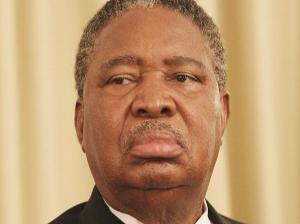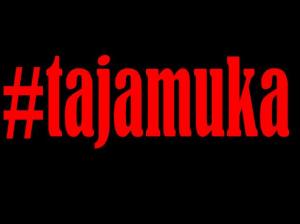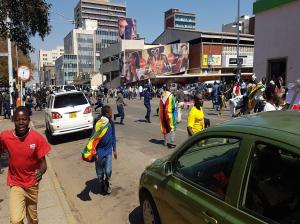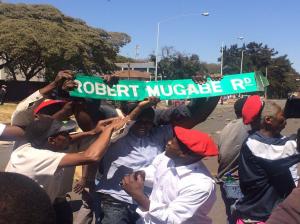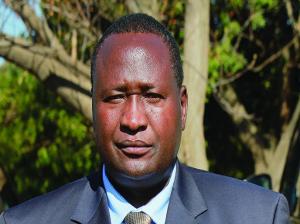US 'retaliates' against Russia over Snowden
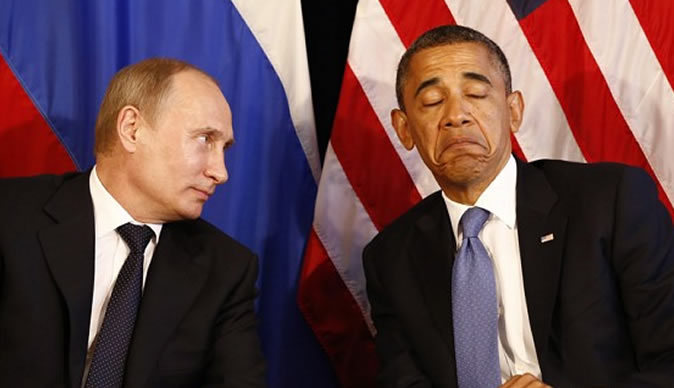
Published: 2013 August 08 06:49:20 (5026 Views)
United States President Barack Obama on Wednesday cancelled a Moscow summit with President Vladimir Putin planned for next month in retaliation for Russia's decision to grant asylum to fugitive US spy agency contractor Edward Snowden.
The move marks a stark low point in US-Russian relations and raised questions about the "reset" in ties that Obama embarked on in his first term to try to gain more diplomatic co-operation, only to find that deep differences remained.
"Following a careful review begun in July, we have reached the conclusion that there is not enough recent progress in our bilateral agenda with Russia to hold a US-Russia summit in early September," White House spokesman Jay Carney said in a statement.
The Russian government expressed disappointment at the decision, which means Obama will skip Moscow talks with Putin but still attend a G20 summit in St Petersburg on September 5 and 6. Obama will stop in Sweden on September 4 instead of visiting Moscow.
"It is clear that the decision is due to the situation around the former US special services employee Snowden, which we did not create," Putin's foreign policy aide, Yuri Ushakov, told reporters in Moscow.
He said Russia's invitation for Obama to visit Russia still stood.
Beyond Snowden, however, a long list of grievances separate the two governments, topped by Russia's support for Syrian President Bashar al-Assad in Syria's civil war.
"The real issue here is that the US-Russian relationship has been adrift since 2011," said Andrew Weiss, a Russian expert at the Carnegie Endowment for International Peace.
"Snowden is the obvious sore point and source of great public attention. But the relationship has been sagging and unmoored for some time now."
Obama and White House officials had debated whether to go ahead with the Moscow visit to give Obama the opportunity to outline his concerns to Putin face-to-face, but decided instead to express US displeasure publicly by cancelling the summit altogether.
Snowden, a former contractor for the National Security Agency, disclosed previously secret US telephone and internet surveillance programs while in Hong Kong in June and then travelled to Russia, where he holed up in Moscow's airport before being granted asylum last week.
Snowden's father, Lon Snowden, told Reuters in an interview that he was confident Putin would not change his mind and send his son back to the United States to face espionage charges.
"President Vladimir Putin has stood firm. I respect strength and I respect courage," he said. "He has stood firm against the face of intense pressure from our government and I have to believe that he will continue to stand firm."
"These games of 'Well, I'm not going to go to this meeting', or 'I'm not going to go to that meeting', I do not believe that President Vladimir Putin will cave to that," he said.
Obama addressed US differences with Russia in an interview with Jay Leno on Monday on NBC's Tonight show. He said the United States and Russia have cooperated on Afghanistan and counter-terrorism, particularly after the Boston Marathon bombings last spring.
"But there have been times where they slip back into Cold War thinking and a Cold War mentality," Obama said. He said he and Putin have had "some pretty blunt exchanges and animated exchanges".
Obama received vocal support from his fellow Democrats as well as Republicans for the decision.
- IOL
The move marks a stark low point in US-Russian relations and raised questions about the "reset" in ties that Obama embarked on in his first term to try to gain more diplomatic co-operation, only to find that deep differences remained.
"Following a careful review begun in July, we have reached the conclusion that there is not enough recent progress in our bilateral agenda with Russia to hold a US-Russia summit in early September," White House spokesman Jay Carney said in a statement.
The Russian government expressed disappointment at the decision, which means Obama will skip Moscow talks with Putin but still attend a G20 summit in St Petersburg on September 5 and 6. Obama will stop in Sweden on September 4 instead of visiting Moscow.
"It is clear that the decision is due to the situation around the former US special services employee Snowden, which we did not create," Putin's foreign policy aide, Yuri Ushakov, told reporters in Moscow.
He said Russia's invitation for Obama to visit Russia still stood.
Beyond Snowden, however, a long list of grievances separate the two governments, topped by Russia's support for Syrian President Bashar al-Assad in Syria's civil war.
"The real issue here is that the US-Russian relationship has been adrift since 2011," said Andrew Weiss, a Russian expert at the Carnegie Endowment for International Peace.
"Snowden is the obvious sore point and source of great public attention. But the relationship has been sagging and unmoored for some time now."
Obama and White House officials had debated whether to go ahead with the Moscow visit to give Obama the opportunity to outline his concerns to Putin face-to-face, but decided instead to express US displeasure publicly by cancelling the summit altogether.
Snowden, a former contractor for the National Security Agency, disclosed previously secret US telephone and internet surveillance programs while in Hong Kong in June and then travelled to Russia, where he holed up in Moscow's airport before being granted asylum last week.
Snowden's father, Lon Snowden, told Reuters in an interview that he was confident Putin would not change his mind and send his son back to the United States to face espionage charges.
"President Vladimir Putin has stood firm. I respect strength and I respect courage," he said. "He has stood firm against the face of intense pressure from our government and I have to believe that he will continue to stand firm."
"These games of 'Well, I'm not going to go to this meeting', or 'I'm not going to go to that meeting', I do not believe that President Vladimir Putin will cave to that," he said.
Obama addressed US differences with Russia in an interview with Jay Leno on Monday on NBC's Tonight show. He said the United States and Russia have cooperated on Afghanistan and counter-terrorism, particularly after the Boston Marathon bombings last spring.
"But there have been times where they slip back into Cold War thinking and a Cold War mentality," Obama said. He said he and Putin have had "some pretty blunt exchanges and animated exchanges".
Obama received vocal support from his fellow Democrats as well as Republicans for the decision.
- IOL
You May Like These Videos
Comments
There are no comments.
Get Zim Metro Updates Alerts
Big Reads

Schoolgirl drops out after continuous 'sexual abuse' by teacher
by Staff Reporter | 2019 August 13 07:42:33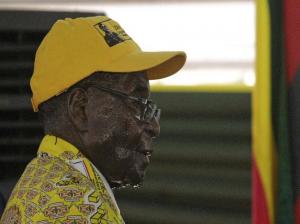
Mugabe Knows Nothing About The Zimbabwe Constitution: MP
by Staff Reporter | 2016 October 01 08:12:02
Zim's Protesting Graduates Risk Losing Degrees For Expressing Anger Against Mugabe
by Staff Reporter | 2016 October 01 07:57:08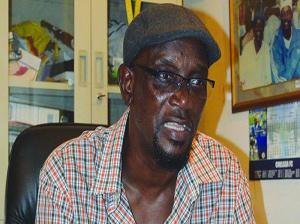
Troubled Harare Giants Dynamos Falls Into Another Deep Crisis
by Own Correspondent | 2016 October 01 07:49:17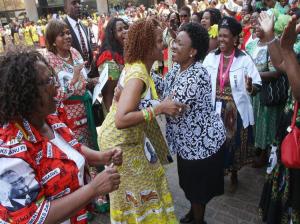
Grace Mugabe Grovels At Mnangagwa, Says I Did Not Ask Ubaba To Fire You
by Staff Reporter | 2016 October 01 07:31:48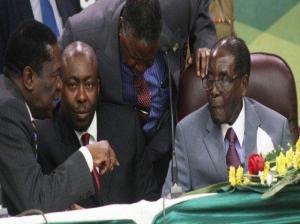
Mugabe Attacks Mawarire, Claims The Exiled Pastor Failed To Divide Zimbabwe
by Staff Reporter | 2016 October 01 07:19:13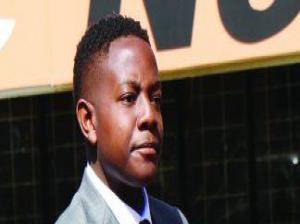
Shock As Local Bank Denies 'Rich' Mugabe's Son Heifty Credit
by Own Correspondent | 2016 September 30 19:14:54
Trouble For Police Officers Who Have Been Mercilessly Bludgeoning Protesters
by Staff Reporter | 2016 October 01 07:20:19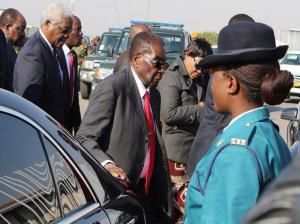
Mugabe "Home Coming" And "Thank You" Rally On Cards
by Own Correspondent | 2016 September 23 06:48:24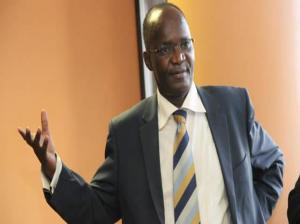
Prof Moyo Was Dumped By Western Embassies, Claims Mutsvangwa
by Staff Reporter | 2016 September 22 10:08:07
Broke RBZ Tracks Down Zimbabweans Living Outside The Country Over Taxi
by Staff Reporter | 2016 September 22 09:16:20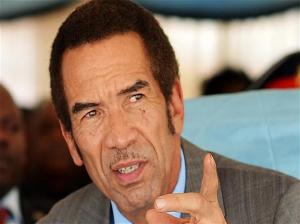
You Are Too Old To Lead, Aging Zim President Mugabe Told
by Own Correspondent | 2016 September 22 07:19:25
Anti-Corruption Commission Loses Property In Failed Probe
by Own Correspondent | 2016 September 20 03:18:19
SHOCKING:14 Year Old HIV-Positive Boy Rapes 7 Pupils
by Own Correspondent | 2016 September 20 00:04:55

 WATCH: Victims Narrate Ordeal After Being Clobbered By Riot Cops
WATCH: Victims Narrate Ordeal After Being Clobbered By Riot Cops FLASHBACK: Morgan Tsvangirai Won't Resign Despite Illness
FLASHBACK: Morgan Tsvangirai Won't Resign Despite Illness  Police Violently Beat Harare Protesters
Police Violently Beat Harare Protesters  Zimbabwean Man Who Was Shot By Tswana Employer Appeals For Help
Zimbabwean Man Who Was Shot By Tswana Employer Appeals For Help







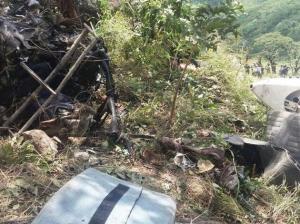
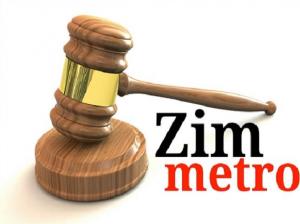
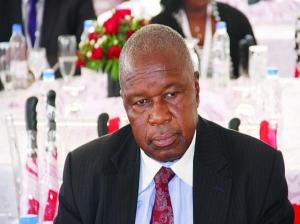

.jpg)
